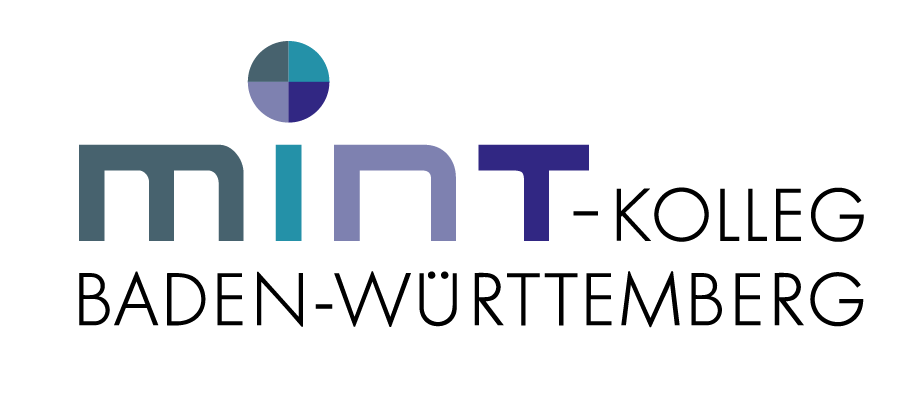Degree: Bachelor of Science (B.Sc.)
Regular program length: 6 semester (full-time program)
Credit points (ECTS): 180 credit points
Language of instruction: German
Higher semester: no
Higher semester: winter and summer term
First semester: September 15
Higher semester: September 15 for winter term, March 15 for summer term
First semester: July 15
Higher semester: July 15 for winter term, January 15 for summer term
Studiengangsbeschreibung
Worum geht´s?
Wenn du technisch interessiert bist, dich aber darüber hinaus beruflich gerne mit Menschen beschäftigen möchtest, ist Ingenieurpädagogik das Richtige für dich. Im Ingenieurpädagogikstudium geht es darum, dich mit Berufspädagogik und dem beruflichen Bildungssystem auseinanderzusetzen, während du ein ingenieurwissenschaftliches Studienfach und in kleinerem Umfang ein zweites Unterrichtsfach studierst. Das eröffnet dir eine attraktive und zeitgemäße Kombination wissenschaftlicher Fachgebiete. Du kannst die technischen Kenntnisse, die du im Studium erwirbst, nicht nur selbst anwenden, sondern auch anderen vermitteln. Die meisten Studierenden absolvieren nach dem Bachelor- auch den Masterstudiengang und beschreiten den Weg in das Lehramt an beruflichen Schulen. Aber auch in anderen Bereichen gibt es Einsatzmöglichkeiten.
Im berufspädagogischen Teil, der ein Viertel deines Bachelorstudiums ausmacht, lernst du durch Vorlesungen und Seminare Grundlegendes über Berufspädagogik und Didaktik. Außerdem absolvierst du ein Praktikum im berufspädagogischen Bereich – in der Schule oder an einem anderen geeigneten Lernort.
Du hast am KIT drei berufliche Fachrichtungen zur Auswahl: Bautechnik, Elektrotechnik und Metalltechnik. Im Wesentlichen besteht dieser Teil deines Bachelorstudiums aus Lehrveranstaltungen der Studiengänge Bauingenieurwesen, Elektrotechnik und Informationstechnik bzw. Maschinenbau. Deine berufliche Fachrichtung legst du gleich zu Beginn deines Studiums fest. Die Bachelorarbeit am Ende des Studiums wirst du zudem an der Fakultät anfertigen, die deinem Hauptfach zugeordnet ist.
Program structure
During your studies, you have various subjects, which consist of one or more modules. A module deals with a specific topic and consists of one or more courses. In the module handbook for your degree program, you will find a description of the modules and their subject assignment as well as a study plan. This gives you an orientation as to which courses you should attend in which semester in order to complete your studies within the standard period of study. It takes into account a balanced distribution of courses over the individual semesters. It also ensures that you are first taught the important basics before moving on to more advanced topics. Your individual course of study may differ from this.
Dein berufliches Hauptfach hat einen Umfang von 98 Leistungspunkten (ECTS) und kann gewählt werden aus:
- Metalltechnik
- Elektrotechnik oder
- Bautechnik
In den ersten Semestern belegst du ingenieurwissenschaftliche Grundlagenfächer wie beispielsweise Mathematik, Mechanik, Datenübertragung oder Baustatik. Im fortgeschrittenen Studium kannst du für dein Hauptfach noch eine Vertiefungsrichtung wählen bzw. in der Bautechnik Module aus einem Wahlpflichtblock zusammenstellen. Dein konkreter Studienplan und deine verpflichtenden Studienmodule hängen von der gewählten Kombination aus beruflicher Fachrichtung (Hauptfach) und zweitem Unterrichtsfach (Wahlpflichtfach) ab.
Dein Wahlpflichtfach (zweites Unterrichtsfach) im Umfang von 20 Leistungspunkten (ECTS) kannst du aus folgenden Fächern wählen:
- Mathematik
- Physik
- Sport
- Volks- und Betriebswirtschaftslehre oder
- Geschichte mit Gemeinschaftskunde
Außerdem kannst du bei Wahl des Hauptfachs Metalltechnik eine weitere Vertiefungsrichtung in diesem Fachgebiet als Wahlpflichtfach wählen.
Im berufspädagogischen Teil sammelst du 40 Leistungspunkte (ECTS) durch die Belegung folgender Module:
- Organisation und Handlungsfelder der beruflichen Bildung
- Didaktik und Methodik
- Planung beruflicher Bildung
- Praxis des beruflichen Lehrens und Lernens
- Berufspädagogische Grundlagen Ingenieurpädagogik
Verpflichtend sind außerdem das Modul Bachelorarbeit, das berufspädagogische Praktikum sowie das Betriebspraktikum.
Berufspraktikum
Im Bachelorstudiengang Ingenieurspädagogik ist ein mindestens 6-wöchiges technisches Betriebspraktikum integriert, in dem du das Arbeitsumfeld deiner späteren Schülerinnen und Schüler kennenlernst. Das Praktikum muss also zu deinem Hauptfach passen. Eine dem Studium vorangehende Ausbildung kann ersatzweise anerkannt werden - wende dich dazu am besten direkt an die Fachstudienberatung. Die Suche nach einem Praktikumsplatz liegt in deiner eigenen Verantwortung. Außerdem ist ein berufspädagogisches Praktikum von 4 Wochen Dauer, das du zum Beispiel in Schulen absolvieren kannst, verpflichtend.
Stays abroad
KIT offers a wide range of options for stays abroad, from individual courses to a year abroad. Especially if you are interested in a longer stay abroad, it is advisable to contact the International Students Office early on.
Bachelorarbeit
Am Ende deines Bachelorstudiums fertigst du deine Bachelorarbeit an, eine wissenschaftliche Arbeit, die es dir ermöglicht, dein erlangtes Wissen und deine Fähigkeiten anzuwenden und zu vertiefen. Die Bachelorarbeit besteht dabei in der selbständigen Bearbeitung und Dokumentation einer Forschungsfrage deiner gewählten beruflichen Fachrichtung (Hauptfach). Die maximale Bearbeitungszeit beträgt drei Monate.
Qualification profile of the graduate
From the composition of the study program it follows that the graduate has a multifaceted qualification profile. Thus, an essential part of the study program consists of the penetration of engineering and scientific contents and phenomena, while another essential part consists of dealing with the learning and competence development of people, but also with the societal development of the vocational training system and the professions. Through an accompanied company internship, the graduate has gained insights into professional work in the professional field. As a result, the graduate is an expert for in-company training and further education in the chosen vocational specialization. Graduates are also excellently prepared for jobs in personnel development, customer consulting and sales thanks to the interdisciplinary orientation of the program.
Berufsperspektiven
Der Bachelorstudiengang Ingenieurpädagogik bietet in den jeweiligen Fachrichtungen Elektrotechnik, Metalltechnik oder Bautechnik ein Ingenieurstudium, das gleichzeitig auf die weitere Qualifikation als Lehrkraft an beruflichen Schulen vorbereitet.
Wer auch den Masterstudiengang Ingenieurpädagogik absolviert, qualifiziert sich für den Vorbereitungsdienst zum Lehramt an Berufsschulen, Berufskollegs, Meisterschulen oder Technischen Gymnasien. Die Einstellungschancen für Gewerblich-technische Lehrkräfte sind ausgezeichnet, weil in diesem Bereich aktuell und mittelfristig Lehrkräfte fehlen. Auch andere Bildungsträger sowie Industrieunternehmen, Verbände und Dienstleister schätzen die in der Ingenieurpädagogik erworbenen interdisziplinären Fähigkeiten - sei es in der Weiterbildung, im Personalwesen, in Beratung, Vertrieb oder Öffentlichkeitsarbeit.
Besonderheiten des Studiengangs
Besonderheiten von Ingenieurpädagogik B.Sc. am KIT
- Vorbereitungs- und Unterstützungskurse am MINT-Kolleg
- ideale Vorbereitung für das Lehramt
- auch Ingenieurausbildung umfangreich
- durch hohes Niveau der Ausbildung in allen Fächern nach dem Abschluss vielseitige berufliche Einsatzmöglichkeiten
Das bietet dir das KIT
- zentraler Campus im Grünen, direkt an der Innenstadt
- Orientierungsphase vor Beginn der Vorlesungen
- 24h-Bibliothek mit Einzel- und Gruppenarbeitsplätzen
- breites, günstiges Verpflegungsangebot (Mensa, Cafeteria, Koeri- und Pizzawerk)
- zahlreiche überfachliche Angebote zur persönlichen und beruflichen Weiterentwicklung, z.B. Lern-, Schreib- und Perspektivenlabor
- Auslandsstudium z.B. über Erasmus
- ausgezeichnetes Hochschulsportangebot mit einer großen Auswahl an Sportarten
- umfassendes kulturelles Angebot mit Uni-Orchestern, -Chören und -Theatergruppen
- umfangreiche Unterstützung für den Berufseinstieg und die Selbstständigkeit
- Lernräume-App
- international ausgerichtete Studiengänge und vielfältige Austauschprogramme
- moderne Labore und praxisnahe Lehrmethoden
- vielfältige studentische Initiativen, Vereine und Möglichkeiten zur aktiven Mitgestaltung des Campuslebens
- nach dem Studium in Kontakt bleiben über das Alumni-Netzwerk
Admission requirements
Hochschulzugangsberechtigung (HZB)
Deutsche und Deutschen Gleichgestellte (d.h. EU/EWR-Staatsangehörige sowie Nicht-EU/EWR-Staatsangehörige mit deutscher Hochschulreife) sind zum Studium am KIT berechtigt, wenn sie eine der folgenden Qualifikationen vorweisen können:
- Allgemeine Hochschulreife (Abitur)
- (einschlägige) Fachgebundene Hochschulreife (nicht Fachhochschulreife)
- Deltaprüfung der Universität Mannheim (für Inhaberinnen und Inhaber einer Fachhochschulreife)
- eine anerkannte berufliche Aufstiegsfortbildung (z.B. Meisterin und Meister) oder Berufsausbildung, Berufserfahrung und Eignungsprüfung für beruflich Qualifizierte
Weitere Möglichkeiten siehe §58 Landeshochschulgesetz.
Bitte beachte: Deutsche Staatsangehörige mit ausländischem Schulabschluss müssen sich vom zuständigen Regierungspräsidium die Gleichwertigkeit ihres Abschlusses mit dem deutschen Abitur bescheinigen lassen.
Für Nicht-EU/EWR-Staatsangehörige mit ausländischem Schulabschluss (im Folgenden auch vereinfacht: Nicht-EU/EWR-Staatsangehörige) gilt, dass aus einigen Ländern das Schulabschlusszeugnis als direkte Hochschulzugangsberechtigung in Deutschland anerkannt ist. In vielen Fällen muss aber zusätzlich zum Schulabschluss noch eine Hochschulaufnahmeprüfung und/oder ein erfolgreiches Studienjahr im Heimatland und/oder die deutsche Feststellungsprüfung mit gültigen Dokumenten nachgewiesen werden, um in Deutschland ein Bachelorstudium aufnehmen zu dürfen. Die länderspezifischen Regelungen kannst du in der Zulassungsdatenbank des DAAD oder auf der Seite Anabin (nur in deutscher Sprache) der Zentralstelle für ausländisches Bildungswesen (ZAB) nachlesen. Weitere Informationen erhältst du beim International Students Office.
Sprachvoraussetzungen und -nachweise
Für den Bachelorstudiengang Ingenieurpädagogik benötigst du ausreichende Kenntnisse der deutschen Sprache, welche mindestens dem Niveau C1 des Gemeinsamen Europäischen Referenzrahmens für Sprachen (GER) entsprechen.
Nachweis ausreichender Deutschkenntnisse
Als Nachweis für deine Deutschkenntnisse genügt deine Hochschulzugangsberechtigung (HZB),
-
wenn du sie an einer deutschsprachigen Schule im In- oder Ausland erworben hast,
-
wenn du Absolventin oder Absolvent einer bilingualen Sekundarschule im In- oder Ausland bist und eine bilinguale Deutschprüfung abgelegt hast, wie z.B. das AbiBac oder das Gemischtsprachige International Baccalaureat (GIB) oder
-
wenn du deinen Abschluss zwar an einer ausländischen Schule gemacht hast, mit dem jeweiligen Land aber eine sonstige offizielle Übereinkunft über die Anerkennung deines Schulabschlusses oder Sprachzeugnisses als Sprachnachweis für ein Hochschulstudium in Deutschland besteht.
Eine vollständige Liste der ausländischen Schulabschlüsse und Sprachzeugnisse, die als Nachweis ausreichender Deutschkenntnisse anerkannt sind, findest du auf der Webseite der Kultusministerkonferenz.
Hast du deine Hochschulzugangsberechtigung nicht an einer deutschsprachigen Einrichtung erworben, musst du - unabhängig von deiner Staatsangehörigkeit - einen gesonderten Sprachnachweis erbringen. Akzeptiert werden dabei ausschließlich
- der bestandene „Prüfungsteil Deutsch“ der Feststellungsprüfung,
- die bestandene DSH mit dem Gesamtergebnis DSH-2,
- die bestandene TestDaF-Niveaustufe 4 in allen vier Prüfungsteilen (Leseverstehen, Hörverstehen, Schriftlicher Ausdruck, Mündlicher Ausdruck) oder
- ein vergleichbares, anerkanntes Zertifikat über ausreichende Deutschkenntnisse.
Um in Erfahrung zu bringen, welche weiteren anerkannten Zertifikate vom KIT als vergleichbar akzeptiert werden können, wendest du dich
- als deutsche oder Deutschen gleichgestellte Bewerberin oder Bewerber an den Studierendenservice
- als Bewerberin oder Bewerber mit Nicht-EU-Staatsangehörigkeit an das International Students Office
Please note:
Language certificates are extremely important application documents that can prevent your enrollment if you do not submit them on time. Therefore, check early on in the application process whether you have the necessary language certificates for your degree program and, if necessary, plan to take one of the language tests mentioned above. The deadline by which you must submit language certificates corresponds to the enrollment deadline stated in your admission offer. In justified cases, you can apply for an extension of this deadline. The extension can be granted until the start of the lecture period at the latest.
Weitere notwendige Voraussetzungen für die Immatrikulation
Für Deutsche und Deutschen Gleichgestellte ist eine weitere notwendige Voraussetzung für eine Immatrikulation der Nachweis über die Teilnahme an einem Studienorientierungstest (z.B. unter www.was-studiere-ich.de) oder einer studienorientierenden Beratung gemäß §7 Landeshochschulgesetz, z.B. durch die Zentrale Studienberatung (ZSB) des KIT. Nicht-EU/EWR-Staatsangehörige müssen diesen Nachweis nicht führen.
Application portal
Application for the 1st semester
Application for a higher semester
Study preparation
Prepatory courses at KIT: The MINT-Kolleg offers prospective and first-year students support in natural science and technical subjects (STEM).
In addition, the KIT-Departments offer special preliminary courses before the start of the semester program during the "O-Phase" (orientation week).
Support during your start at KIT
The KIT offers support for all first-year students in order to have a successful start of their studies. Numerous orientation events and mentoring programs at the KIT-Departments help students to make friends, orientate themselves and find support where needed. The central online portalstudienstart.kit.edu is a first guide to all important offers, brings together all relevant information and contains helpful hints for a successful start of your studies:
- advisory centers
- mentoring programs
- info sessions
- workshops
- extensive online information
Contacts
Student advisor
Student advisory services (ZSB)


Karlsruher Institut für Technologie (KIT)
Zentrale Studienberatung (ZSB)
Engelbert-Arnold-Str. 2
76131 Karlsruhe
Karlsruher Institut für Technologie (KIT)
Studierendenservice
Kaiserstr. 12
76131 Karlsruhe
First point of contact for international applicants
Karlsruher Institut für Technologie (KIT)
International Students Office (IStO)
Adenauerring 2
76131 Karlsruhe
Printed matter
Module handbook
Statutes and regulations
Teaching calendar
WT 2024/25
10-21-2024 to 02-15-2025
ST 2025
04-22-2025 to 08-02-2025
WT 2025/26
10-27-2025 to 02-21-2026
ST 2026
04-20-2026 to 08-01-2026
WT 2026/27
10-26-2026 to 02-20-2027
ST 2027
04-19-2027 to 07-31-2027
WT 2027/28
10-25-2027 to 02-19-2028
ST 2028
04-18-2028 to 07-29-2028
Lectures will not take place:
- From 12-24 to 01-06
- the week after Pentecost
- on all public holidays in the state of Baden-Wuerttemberg







